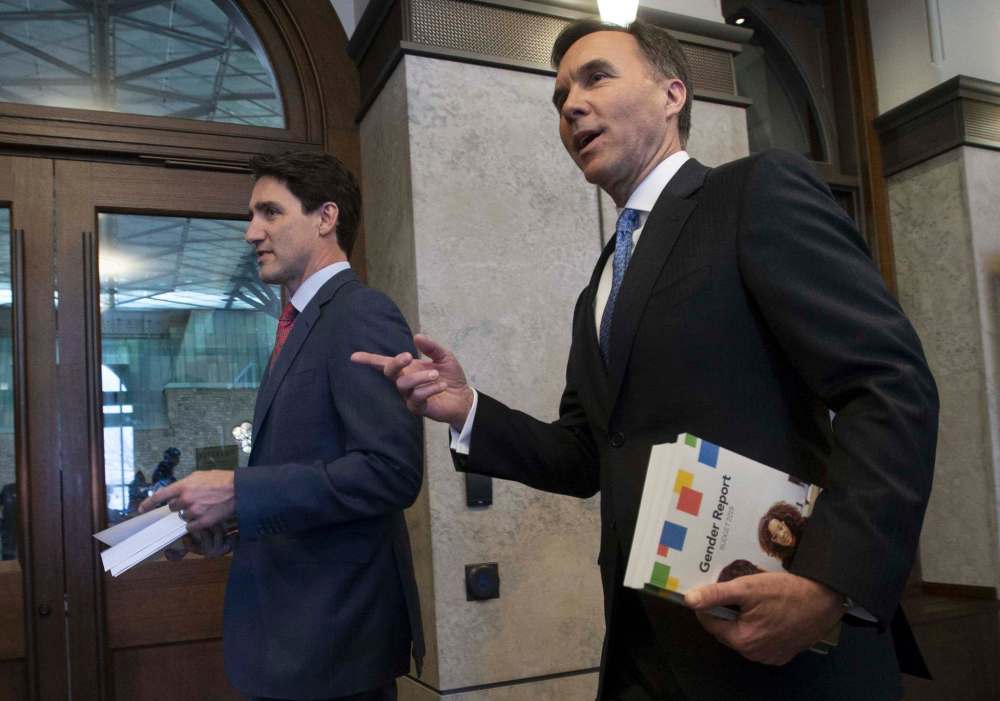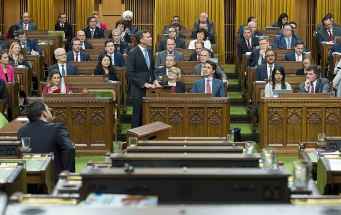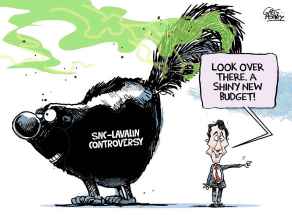Liberals hope budget eclipses scandal
Read this article for free:
or
Already have an account? Log in here »
To continue reading, please subscribe:
Monthly Digital Subscription
$0 for the first 4 weeks*
- Enjoy unlimited reading on winnipegfreepress.com
- Read the E-Edition, our digital replica newspaper
- Access News Break, our award-winning app
- Play interactive puzzles
*No charge for 4 weeks then price increases to the regular rate of $19.00 plus GST every four weeks. Offer available to new and qualified returning subscribers only. Cancel any time.
Monthly Digital Subscription
$4.75/week*
- Enjoy unlimited reading on winnipegfreepress.com
- Read the E-Edition, our digital replica newspaper
- Access News Break, our award-winning app
- Play interactive puzzles
*Billed as $19 plus GST every four weeks. Cancel any time.
To continue reading, please subscribe:
Add Free Press access to your Brandon Sun subscription for only an additional
$1 for the first 4 weeks*
*Your next subscription payment will increase by $1.00 and you will be charged $16.99 plus GST for four weeks. After four weeks, your payment will increase to $23.99 plus GST every four weeks.
Read unlimited articles for free today:
or
Already have an account? Log in here »
Hey there, time traveller!
This article was published 20/03/2019 (2457 days ago), so information in it may no longer be current.
And now, back to our regularly scheduled programming.
Most Canadians know that federal Finance Minister Bill Morneau’s latest budget is just as much about changing the channel on the current preoccupation with the SNC-Lavalin scandal as it is about laying the groundwork for a Liberal triumph in the fall election. To that end, the Liberals are likely to be successful, to some extent, in getting Canadians thinking and talking about something other than the explosive allegations that senior political staff in the Liberal government tried to interfere with a criminal prosecution.
Assuming they will be able to draw attention away from SNC-Lavalin, the budget demonstrated a deft ability to hit a series of notes that will, at the very least, compete for the attention of voters.

It introduced measures to boost incomes for seniors, expand drug coverage, help first-time homebuyers, and offer more money for affordable housing, municipal infrastructure, skills training and improved living conditions for Indigenous people. In choosing to spend more and defer deficit reduction, the Liberals delivered a budget that touches on a wide array of issues that Canadians care deeply about. It also establishes a profound contrast with the federal Conservative party, mere months before an election campaign is expected to begin.
However, these budget measures can only be effective at supporting a Liberal re-election bid if — and it’s a big “if” — collective Grit efforts to bury the SNC-Lavalin affair are successful. And there are many reasons to believe these efforts will fall short.
The Liberals used their majority on the Commons justice committee to prevent further examination of the SNC-Lavalin affair, pre-empting moves by opposition MPs to force the committee to have former justice minister Jody Wilson-Raybould return for a second round of testimony.
Ms. Wilson-Raybould remains the central figure in the enduring scandal around attempts by senior Liberal staffers to help SNC-Lavalin obtain a deferred prosecution agreement and avoid criminal prosecution for bribing the Libyan government to obtain lucrative contracts.
This strategy certainly eliminates a valuable forum that the opposition was using to ramp up concern over SNC-Lavalin and, ultimately, the treatment of Ms. Wilson-Raybould. But it will hardly eliminate the opposition appetite to keep the story alive. And, it is unclear whether Ms. Wilson-Raybould, who still plans to run for re-election on a Liberal ticket, will step forward to say more about the pressure she faced to help SNC-Lavalin on her own, away from the structure of a committee hearing.
On Tuesday, the day the Liberals shut down the justice committee, federal Conservative Leader Andrew Scheer disrupted proceedings in the House of Commons in protest. The Tories did delay Mr. Morneau’s budget speech, but were ultimately unable to delay the tabling of the budget. The Tories and other opposition parties have promised to use every procedural tool available to bring the federal legislature to a standstill.
It means that for the next few months, the House of Commons will be the scene of a war of political attrition the likes of which Canadians have never witnessed. The sparring will likely continue until it is time for Prime Minister Justin Trudeau to drop the election writ this fall.
Then, and only then, will we be able to see which party and which strategy was more effective.














